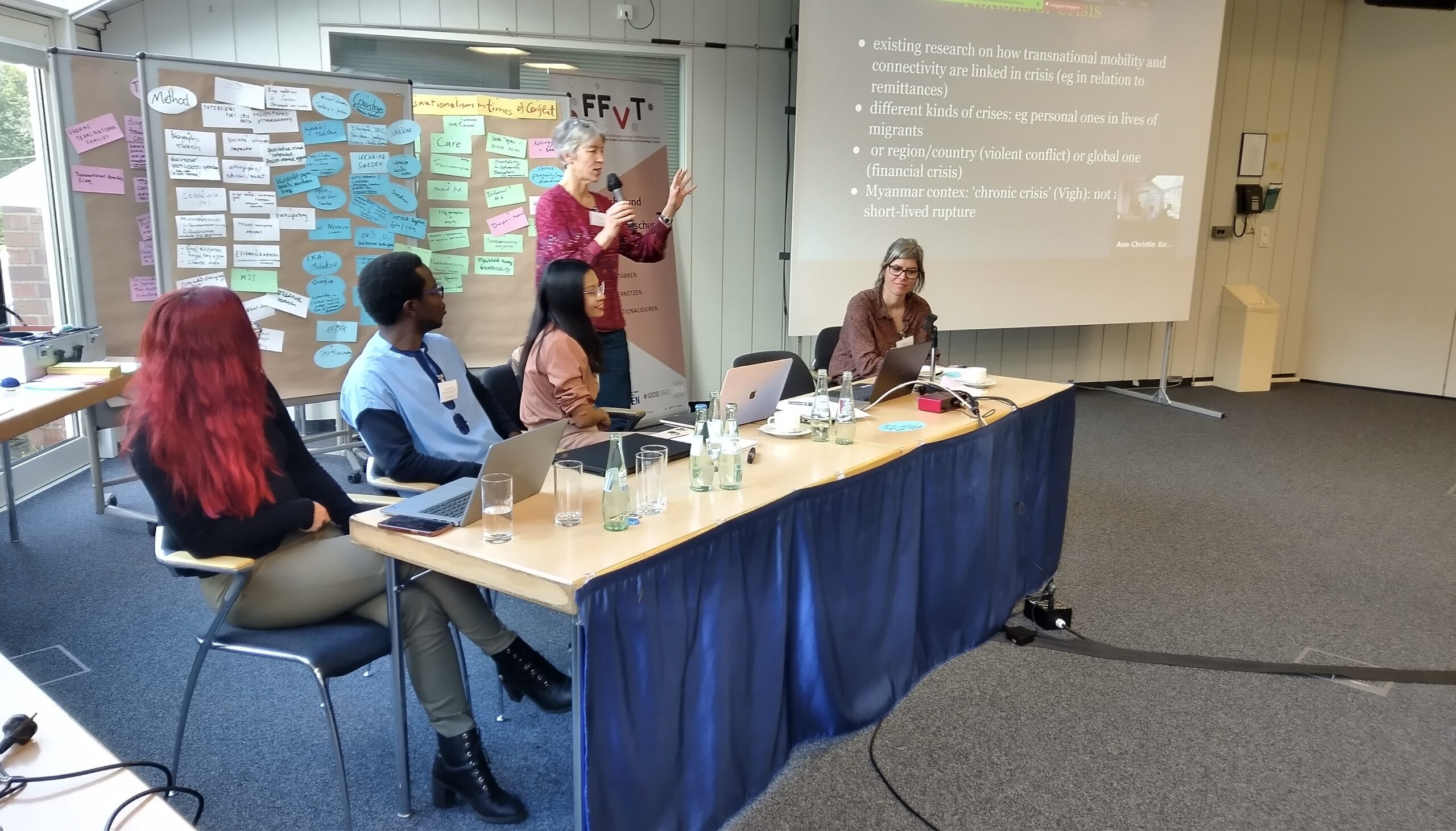In March 2023, the Bonn International Centre for Conflict Studies (BICC) hosted a two-day symposium, with the aim of exploring how violent conflicts impact people’s movements, social relationships and transnational practices. The key question was how transnational mobility and connectivity evolve and transform during war, and how these forms of mobility and connectivity affect the lives of those who are transnationally (dis)entangled.
Professor Anne-Meike Fechter (University of Sussex) and Eileen May (Covenant Institute), representing the Myanmar country team of the Protracted Displacement Economies project, shared recent findings from their research. Their talk, ‘Transnationalism in displacement: Informal aid across the Thai-Myanmar border’, argued that armed conflict does not necessarily disrupt (supportive) community relations, but can also intensify or shape them differently. They demonstrated how existing support practices among resident and internally displaced person communities become important in regard to both recent and long-term displacement. This linked up well with the work of other Germany-based scholars working, for example, on the Rohingya in Bangladesh and India, and provided a productive space for exchange.
The atmosphere during the symposium was very much in support of early career scholars, and concluded with a PhD-orientated training on conducting empirical research in times and places of violent conflict. In addition to keeping the struggle of Myanmar civilians (after the military coup of February 2021) alive in people’s minds, the talk shone a light on displacement economies in Southeast Asia, a topic that often falls outside the view of international migration scholarship.
